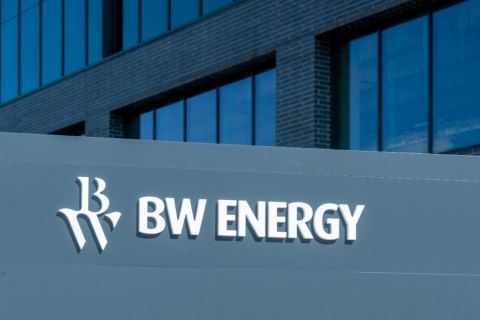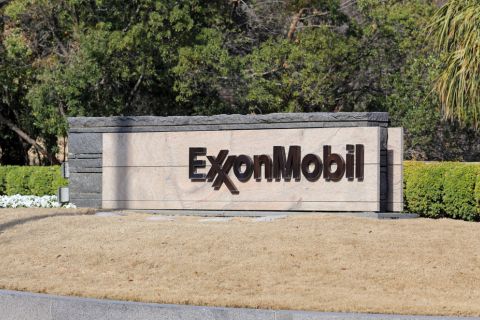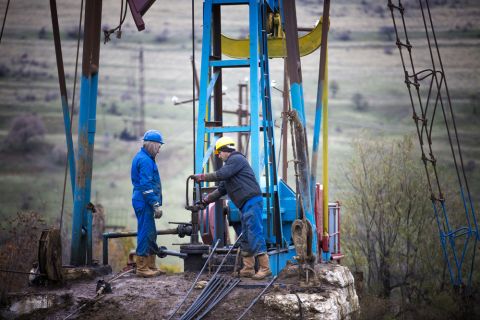Keila Aires Diamond, managing director and head of ESG for Quantum Energy Partners, strives to bring the company’s already robust ESG program to the “next level” in supporting the clean energy transition.
Diamond sat down with Nissa Darbonne, Hart Energy executive editor-at-large to discuss ESG policies and companies' "E" scores in this exclusive interview. Click here to view Diamond's complete 25 Influential Women in Energy profile.
Nissa Darbonne: Privately held operators, from what I'm seeing, are just as earnest in working on their E score. Is this what you're seeing as well?
Keila Diamond: Thank you for having me, Nissa. It's a pleasure to speak with you and always a pleasure to talk to your audience. Yes, the environmental aspects have always been a focus for the industry, right? So think about the way we operate, what we do how we bring about our products for that, for those reasons, specifically, the E scores really now is a big part of the now — not now actually, historically, it's a big part of the license to operate, and it's because of … this aspect of being a part of the license to operate, that the E scores actually influence the social scores and the governance scores, right? So influence S and G. And so it's a big focus for the industry. Getting that well done is very important for investors. It's important for the communities where they operate. It's very important for new employees and how the industry's first perceived. So definitely, I would say it's still a very important aspect of industries.
ND: And while operators and oil field service firms as well, with the operators that you're invested in, others have invested in, have come a long way in emissions and so on and so forth. What is the next big step that is ne needed towards carbon neutral? Is it CCS [carbon capture and storage]?
KD: Nissa, you know, I get question quite often. People ask me, what should I focus on and what should we do first? And I always tell the operators that I work with, focus on your operational excellence, right? First, first and foremost, make sure that you're operating to the highest excellence possible because that will give you productivity, number one. And that will also so by default help you with your emissions. Because if you are having a really great maintenance program for avoiding leakage, for example, you are already most likely tackling your methane. You're already doing a really good job at your, potentially a big chunk of your emissions. Also look at your, where you are spending the majority of your fuels, right? Where, what you can do on your drilling completion to improve that. So overall, I would say focus on your operations and then explore additional possibilities that will demand the larger capex, right?
So for example, CCUS [carbon capture, utilization and sequestration] definitely is a must-do for the industry. We really, there's no way we can achieve our overall industry goals without CCUS. But for an individual operator, especially for the medium- and smaller-size operator it's important that they think about that in a stepwise approach. Don't think about, okay, CCUS is the only thing I must aspire to do. And then they lose sight of the small details on the operation day to day that that are as important sometimes to tackling their Scope 1, which is so important. And obviously when they're expanding to their Scope 3 they will have to expand to other possibilities like carbon capture, utilization and storage, EOR and etc.
ND: Your funds investors themselves are insisting on that. Your investments have strong E scores and work in ESG as well. Are your funds investors, have you seen them over time increasing their demands incrementally?
KD: Yes, absolutely. So I would say to every operator up there who are wondering, okay, where is ESG going next? The details for sure. So investors have always been asking how the operators are doing. They have had asked questions that were a little more generic, right? Do you have a policy? What kind of programs are you putting in place? And then when we think about the E scores or the E factors, and we are thinking mostly about emissions, but we can't really lose sight of things related to water. The releases to the soil, to habitats and species management as well. Anything related to biodiversity is a big issue that I see arising after the, the concerns around the water and emissions. But the reality is that investors are now starting to become a little more interested in the details.
So, okay, what exactly you're doing? How are you doing? How are you measuring it? How are you following those measurements, that baseline and how are you improving over time, what you're putting in place? What is your performance year on year? Show me how you have improved. So those questions [are] what we are seeing the most, and that's how we are working with our, the operators that we work with to make sure that they put in place the proper data gathering understanding where their performance is so they can show it, they can, in a way, have a track record, track of record of their performance over time and show improvement, right?
Doing what they're doing without having that data really takes away on being recognized for all the efforts that they're doing. And so I'd say if you're putting a new program in place, if you are in increasing the efficiency of fleet or you're drilling make sure that you are following that data and you are tracking that over time so you can show how you have done on the previous efforts and then how you're doing it currently and how much you have reduced.
And that's pretty much where I see the industry going. And that's pretty much what they should be expecting of investors as well.
Recommended Reading
E&P BW Energy Undergoes ‘Technical’ Ownership Restructuring
2024-05-08 - The restructuring will not involve any change to the ultimate control of BW Energy as the shares currently held by BW Group will be sold to BW Energy Holdings.
Wood Mackenzie Appoints Jason Liu as CEO
2024-05-07 - Liu replaces former CEO Mark Brinin, who is departing to pursue other opportunities, Wood Mackenzie said.
Hess Midstream Subsidiary Plans Private Offering of Senior Notes
2024-05-08 - The proposed issuance is not expected to have a meaningful impact on Hess Midstream’s leverage and credit profile, according to Fitch Ratings.
Exxon Appoints Maria Jelescu Dreyfus to Board
2024-05-08 - Dreyfus is CEO and founder of Ardinall Investment Management, a sustainable investment firm, and currently serves on the board of Cadiz Inc. and Canada-based pension fund CDPQ.
OFS Sector Loses Jobs, but Trade Org Says Growth Potential Remains
2024-05-08 - According to analysis by the Energy Workforce & Technology Council, the OFS job market may still have potential for growth despite a slight decrease in the sector in April.





